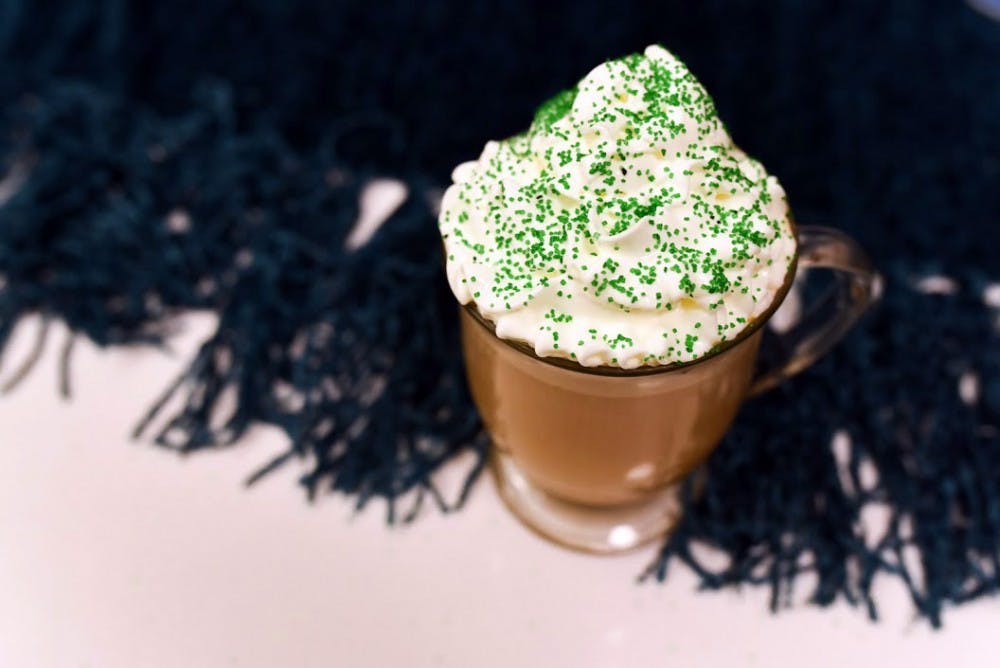Unpopular opinion, I know, but before you say anything, check the byline and Google my surname—the first Coyne in my family came to America, alone, on a boat, in the hopes of later being joined by family. He found himself a job at a Nabisco factory and taught himself to read from textbooks. As a child, I remember spending hours watching TV to see when my brother would go by in the New York St. Patrick’s Day Parade or listening as my father pridefully explained the significance of the seahorse and spear on the coat of arms hanging on the wall. I certainly don’t hate my heritage or the opportunity to celebrate it. What I hate is the image of reckless intoxication, the throngs of rowdy college students crawling from bar to bar and the unscrupulous “darties,” where everyone is wearing that shade of green that proclaims their public drunkenness, safe in the knowledge that law enforcement is color blind—it can only see in black and white. When I look at people drunkenly stumbling around the street every March 17, I can’t help but think that so many of the Irish weren’t massacred, starved and deprived of rights in Ireland—and then initially hated in the US before assimilating into white privilege—so that people could be belligerently drunk in public.
Now, I’m sure plenty of others of Irish ancestry are probably like, “Hey, we’re all about celebration, enjoying life and sharing our culture with others!” Totally, I couldn’t agree more. Ever been to an Irish funeral? It’s basically just a party because we do, indeed, like to have fun and we’re also really awful at expressing negative emotions—30 Rock and John Mulaney are right about all that. However, if you’re going to give yourself that magical hyphen—the optional ethnicity—of “Irish–American,” maybe we can make the celebration of it about more than just indulgence in whiskey, repetitive jokes about alcoholism and an inevitable hangover.
Especially since the history of the Irish in America when it comes to drinking is a painful one. Truthfully, America is more often a meat grinder than a melting pot for any immigrant group; when the Irish left the land—both literal and geopolitical—that had betrayed them, many fled to cities and ways of life unlike anything they had ever experienced, turning to alcohol as a coping mechanism. Before their descendants could benefit from the historical privileges of being white—as they would come to, and as I and many others do—Irish immigrants had to assimilate and come to grips with urban life in America, which caused many to spiral into alcoholism, bringing derision upon their communities. It didn’t stop there either—alcoholism is often intergenerational and believe me that when you see it for yourself you’ll know why I’m angered by this intransigent public connection between the drunk and the Irishman. When you’ve seen Jack Daniels bring a man to the brink of death you’ll know why I don’t find it funny when you joke about being an alcoholic because you’re a messy drunk, or an “amateur,” as my dad would say. Addiction isn’t a joke, plain and simple. It’s only funny if you don’t know what it looks like. For everyone that’s ever asked me why I don’t drink, it’s because of this history of substance abuse, both familial and ethnic. It’s this history that challenges the nexus of alcohol and inconsequential fun in my mind, making this a day that perverts a fraught reality for some cheap drinks and cheaper fun.
When it comes to St. Patrick’s Day, it feels like a missed opportunity to explore an unfathomably rich history. What of the language, the resilience of the people, the fight for independence from the British? The history of the Irish is not just one of folksy drunkenness. My mother imitates a brogue as she tells the stories of those who helped raise her, and I want the day to be about their stories too—not just the ones that you’ll tell your friends at brunch tomorrow. Now, don’t think I don’t see the irony in complaining about a white ethnicity being reduced to a negative image; in America, people of color often do not have the luxury of picking and choosing when to activate an identity. I am not crying oppression, just voicing a personal frustration in wanting the ethos of St. Patrick’s Day to be less about PBR and more about the people who were chewed up and spit out so I could be where I am.

